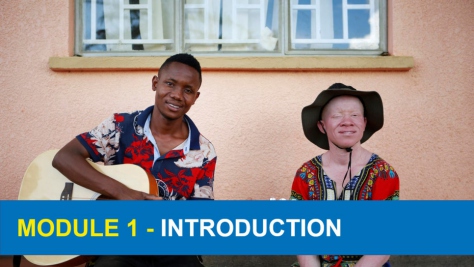UNHCR concerned over ending of rescue operation in the Mediterranean
This is a summary of what was said by UNHCR spokesperson William Spindler – to whom quoted text may be attributed – at today's press briefing at the Palais des Nations in Geneva.
UNHCR is concerned over the announcement of the ending this month of the Italian operation Mare Nostrum without a similar European search and rescue operation to replace it. This will undoubtedly increase the risk for those trying to find safety in Europe, and could lead to more refugees and migrants perishing at sea. It is estimated that 3343 people have lost their lives this year while making such journeys, 2755 of them since the start of July.
UNHCR has welcomed Mare Nostrum, which has contributed to the rescue of around 150,000 refuges and migrants since it began a year ago as a response to two tragedies off the coast of Lampedusa, where over 600 refugees and migrants died. Today, UNHCR reiterates its call for Europe to commit more resources to rescue at sea in the Mediterranean.
It is critical that the long-established tradition of rescue at sea is upheld by all. UNHCR also recognizes the efforts made by many commercial vessels - this year alone they have contributed to the rescue of about 37,000 people. To the extent possible, such rescue must ensure minimal financial impact on the shipping industry. Predictability on places for the disembarkation in safety of those rescued is also required.
In addition, Europe needs to step up efforts to provide credible legal alternatives to dangerous voyages to protect people from the risks of traveling with smugglers. The collective response needs to maintain a strong capacity to rescue people at sea and increase safer ways for refugees to find safety in Europe, including enhanced resettlement, other forms of humanitarian admission and private sponsorship schemes. UNHCR is also calling on European governments to do more to facilitate family reunification and use programmes such as student or employment visas to benefit refugees.
The level of desperation among many of those involved, fleeing war, persecution and violence, including from Syria require our concerted efforts to respond. This trend began in June and July last year, before Mare Nostrum was established, and has continued in 2014. In addition, an increased number of women, children, including many unaccompanied, and elderly people are taking to dangerous sea routes. They face greater risks, are more vulnerable to abuse and have specific needs that require assistance after they are rescued.
These challenges cannot be addressed by a few states alone; a joint European response is needed, based on collaboration among states and EU support. These efforts also need to ensure additional initial reception facilities, adequate reception conditions, assistance in processing as well as identifying solutions for those in need of international protection
For more information on this topic, please contact:
- In Rome, In Rome, Carlotta Sami on mobile +39 335 679 4746
- In Rome, Federico Fossi on mobile +31 349 0843461
- In Geneva, William Spindler on mobile +41 79 217 3011
Related news and stories
First UNITY Cup shows the power of football to connect refugees and hosts
Scholarships in Italy allow refugees to dream again
Relief for asylum seekers offered a new life outside Libya
Evacuation flights from Libya to Italy bring hope for vulnerable asylum seekers
UNHCR and Council of Europe discuss statelessness, urge States to uphold the right to a nationality in Europe
UNHCR warns of mounting refugee and migrant deaths in the Central Mediterranean
-

ES/2022/01 UNHCR Asylum Capacity Development Evaluation
1 Jun 2022 This document summarises the findings, conclusions and recommendations of the Independent Evaluation of UNHCR's Support for Strengthening National Asylum Systems. The overall purpose of the evaluation is to review how UNHCR has fulfilled its objective to support and strengthen the capacity of national asylum systems in the period 2015–2020 and thereby improve the quality of protection for persons of concern and the sustainability of the systems that support this. Attachments: Executive Summary, Evaluation Brief, Management Response and Annexes (.zip) -

Video Module 1
31 May 2022 -

Course evaluation
31 May 2022 -

Handout 1 - Video Transcript: Safak Pavey
31 May 2022 The handout contains the transcript of the video statement by Safak Pavey, former UNHCR colleague and member of the CRPD committee, on the importance of working with persons with disabilities in forced displacement. -

Saving Maternal and Newborn Lives in Refugee Situations - Evaluation Summary
31 May 2022 UNHCR implemented a three-year project (supported by the Bill and Melinda Gates Foundation) to reduce neonatal and maternal mortality and morbidity among refugees in Cameroon, Chad and Niger. The project targeted 772,000 refugees and focused on low-cost, high-impact interventions. This document provides a summary of the end of project evaluation. -

UNHCR Facilitators Guide - Working with Persons with Disabilities in Forced Displacement
31 May 2022 This Facilitator's Guide on Strengthening Protection of Persons with Disabilities in Forced Displacement supports UNHCR colleagues, partners and others in the field level to recognize protection concerns faced by persons with disabilities and identify different strategies to mitigate risks and promote the inclusion of persons with disabilities in UNHCR programming. -

Handout 0 - Organizing accessible workshops
31 May 2022 The document provides colleagues and partners with practical tips on organizing accessible and meaningful workshops and training for and with persons with disabilities. -

Handout 2 - Models of disability
31 May 2022 The handout for Module 2 Activity 2 of the Disability Inclusion Facilitator's Guide includes the definitions of the four models of disability: charity model, medical model, social model, and rights-based model. -

Handout 3 - Profile cards
31 May 2022 The Handout contains the individual profile cards to be used during Activity 1 of Module 3 of the Disability Inclusion Facilitator's Guide. Each profile card contains the information of a person of concern with disabilities.
